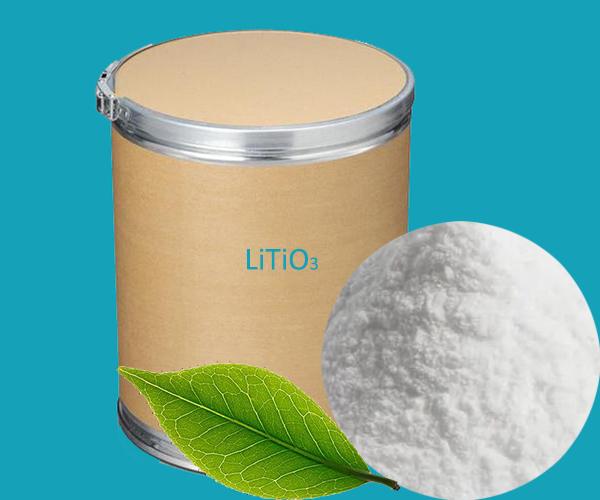Lithium titanate (LiTiO3) is an inorganic compound that belongs to the titanate class with a special crystal structure and high melting point. It is a white or yellowish solid that is usually synthesized by high-temperature solid-phase reactions or wet chemical methods. Lithium titanate has a variety of applications in materials science and industry, especially in the electronics and ceramics.
Lithium titanate is a versatile inorganic compound that is used in several fields mainly due to its stable physical and chemical properties. Here are some of the main uses of lithium titanate:
1. Electronic ceramics: Lithium titanate's high dielectric constant and temperature stability make it an ideal material for manufacturing electronic ceramics, which are used in the manufacture of capacitors, oscillators, filters, and microwave devices.
2. Solid-state electrolyte: In solid-state batteries, lithium titanate can be used as a solid-state electrolyte material because of its good ionic conductivity. This helps to improve the safety and durability of the battery.
3. Electrode material: Lithium titanate can be used as an electrode material for lithium-ion batteries. Although its energy density is not as high as that of other types of lithium compounds, lithium titanate electrodes are valued for their superior cycling stability and longevity.
4. Biomedical applications: The biocompatibility of lithium titanate gives it potential applications in biomedical fields such as bone repair and implant materials.
5. Transparent ceramics: Lithium titanate can be used to make transparent ceramics that have applications in optical and laser technologies, such as window materials, optical prisms, and laser media.
6. Thermal barrier coating: Due to its high melting point and good thermal stability, lithium titanate can be used as a thermal barrier coating material to protect aerospace and gas turbine components from high temperature damage.
7. Gene delivery vectors: In the field of biotechnology, lithium titanate nanoparticles are being studied as gene delivery vectors for gene therapy and molecular biology research.
8. Research models: In materials science research, lithium titanate is used as a model system to study fundamental phenomena such as crystal growth, ion conduction, and electronic structure.
 English
English Español
Español Português
Português Français
Français Deutsch
Deutsch Русский
Русский 中文
中文 日本語
日本語
